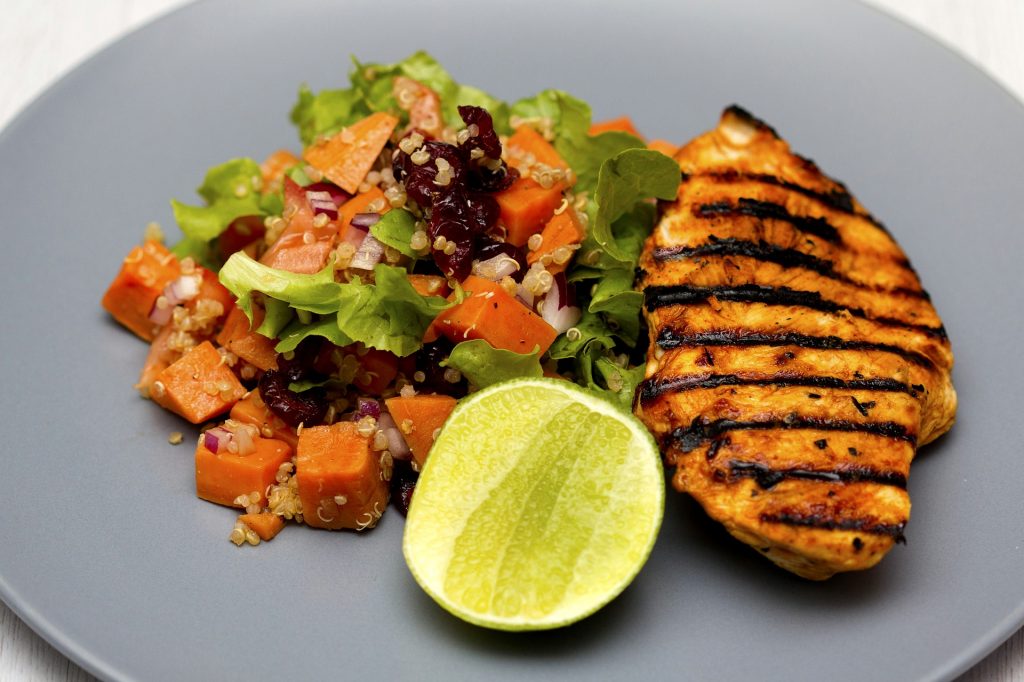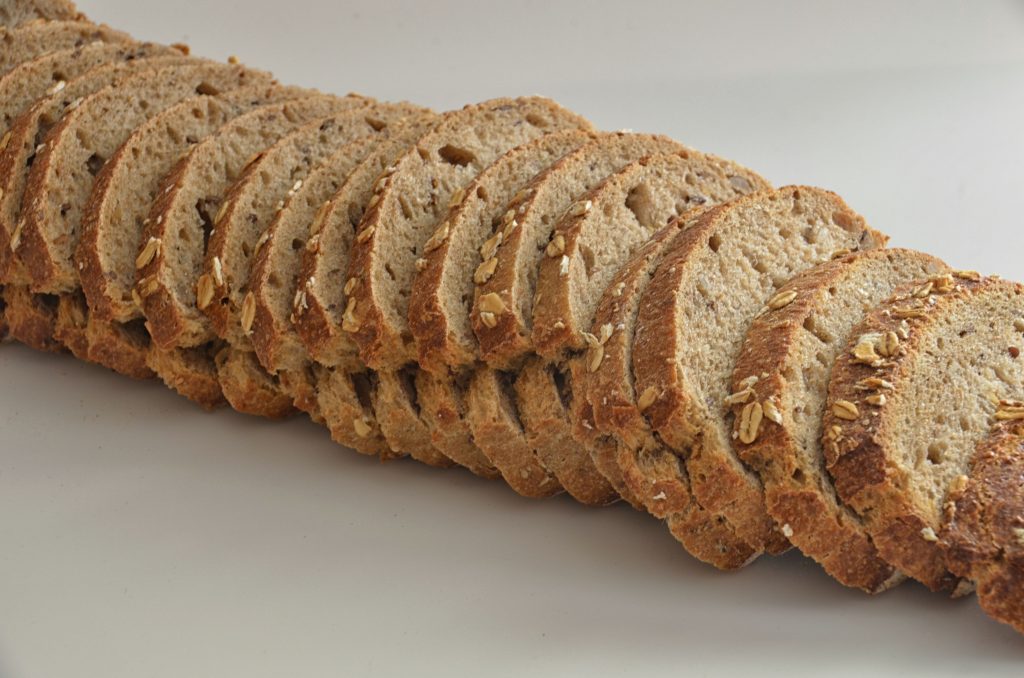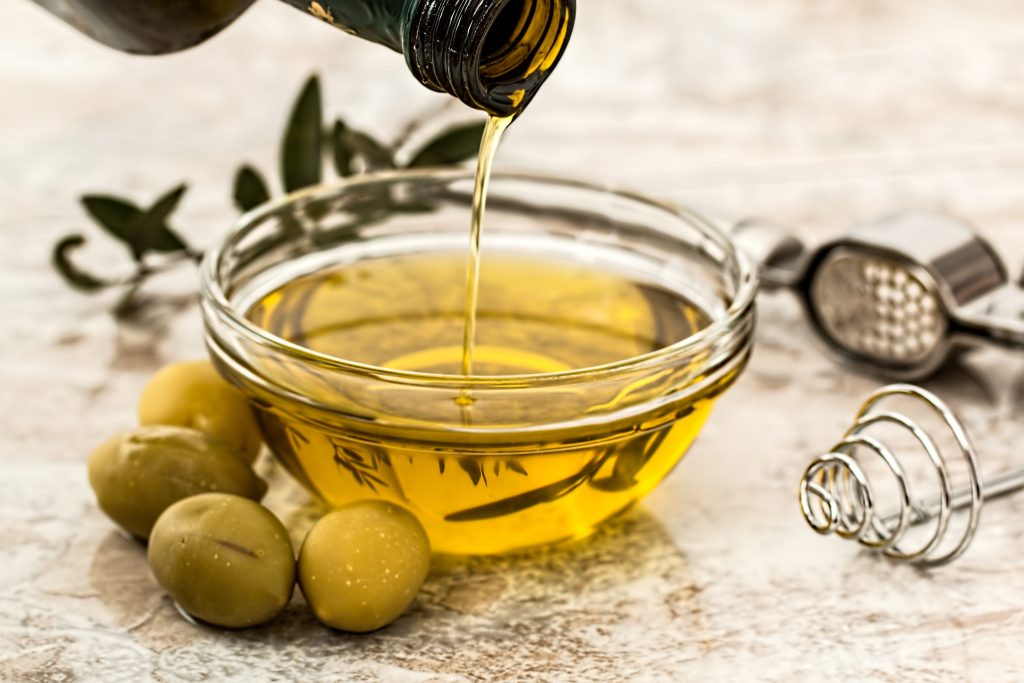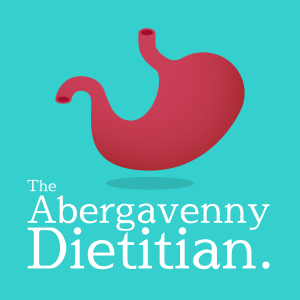Have you ever thought about how nutrition can complement your exercise regimen? Are you looking to improve your performance in the gym or your chosen sport? Are you being bombarded with information about supplements, “macros,” or intermittent fasting, etc.?!
There is just as much misinformation around sports nutrition as there is around slimming diets or food intolerances: if not more so because supplements are big business.
A few basic facts about sports nutrition
- If your goal is to lose fat, then you have to eat fewer calories than you burn – there is no way around this!
- If your goal is to build muscle, then you pretty much have to take in more calories than you need.
People who are new to exercising may find they can add a little muscle without significantly changing their diet – but adding muscle mass is a very costly exercise for your body. Your body won’t spend energy and protein on this unless plenty is coming in.
The point I am making is that calorie balance is critical! You can fiddle around with macronutrients, micronutrients, meal timings and supplements but unless you are eating the correct number of calories for your individual goal, you won’t get far.
Macronutrients
Next on the priority list, you need to think about your macronutrients. These are protein, carbohydrate and fat.
Protein

Most people know that protein is essential for muscle build and repair. However, your body can only use so much at any one time for this. Any excess protein after that will be used as fuel – or stored as fat – depending on your calorie balance. Current recommendations are
- 8 – 1.0g per kg body weight per day for the general population
- 2-1.4g/kg for endurance athletes
- 4-2.0g/kg for strength athletes.
It is advisable to space your protein intake out across the course of the day. For example, if you have four meals a day, try to have about a quarter of your protein intake at each.
Carbohydrate

Protein may be having its moment in the limelight, but carbohydrate is vital. If a meal is composed only of protein, then most of that will be burned as energy, with little left to go toward muscle build and tissue repair. It will be very difficult – if not impossible – to build muscle without carbohydrate! Carbohydrate is the primary source of energy for all exercise and sport.
Recommended intakes will depend on workload
- 4-5g per kilo of body weight for those for doing three-to-five hours of training a week
- 6-8g/kg for those who train for between an hour and two hours every day.
Undereating carbohydrate can lead to poor performance and muscle loss.
Fat

The production of hormones such as testosterone, prostaglandin and oestrogen rely, in part, on fat intake – and these hormones are vital to muscle retention, muscle gain and performance adaptions in sport and exercise. The minimum recommendation is around 0.6g per kg of body weight per day (both for general health and for sport), and the maximum is about 35% of your daily calorie intake. Choose unsaturated over saturated fat, as I recommended in my last article.
When in the day should I eat?
Eating four or five relatively evenly sized, evenly-spaced meals is best in terms of controlling hunger and providing a constant source of energy.
Intermittent fasting – going many hours without eating – has become popular recently, but this is far from ideal for sport. During the periods when your last meal has been fully digested, but no new nutrients are coming in, the body will begin to break muscle tissue down for amino acids. Fat may be lost, but so will muscle. This is terrible news for anyone, but especially active people and athletes.
Where do fruit and veg fit in? In sports nutrition, It is crucial to get a wide range of micronutrients as these are involved in energy production, the immune system, and practically every other bodily process you can think of. An excellent place to start is to try to each five differently-coloured fruit and vegetables each day
What about supplements?
There are two essential things to remember here:
- Supplement use contributes to 5% or less of your nutrition plan’s effectiveness. So, they are only worth it if your calorie balance, macronutrient balance, meal timing and healthy food choices are all already in place.
- Very few supplements – from the vast array out there – have been shown to have any consistent benefit.
There are a few exceptions – such as whey protein and carbohydrate gels used during, or for recovery from, intense exercise, and also caffeine, creatine and omega-3 fatty acids.
However, these are still only the cherry on top of the well-balanced diet cake!
How can I translate all this into meals on my plate?
Many people would benefit from an individualised dietary plan, to help them to focus on their sports nutrition goals and translate the science into foods and meals they like and are happy to eat! If this is you, then don’t rely on information picked up on social media or in the gym. Consult a Registered Dietitian or Registered Sports Nutritionist. I will be happy to help to advise you!


